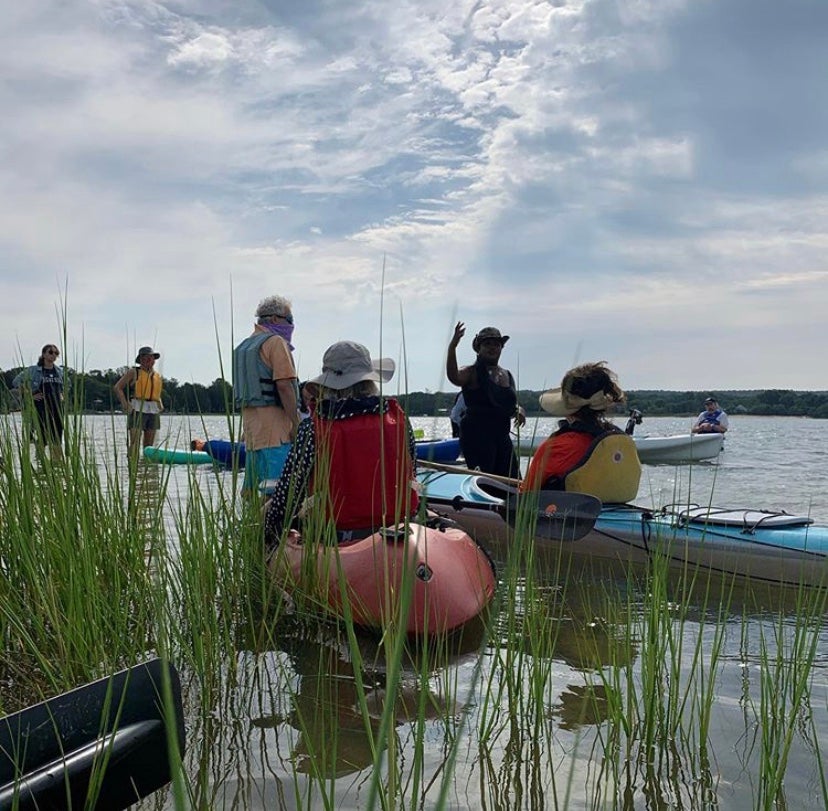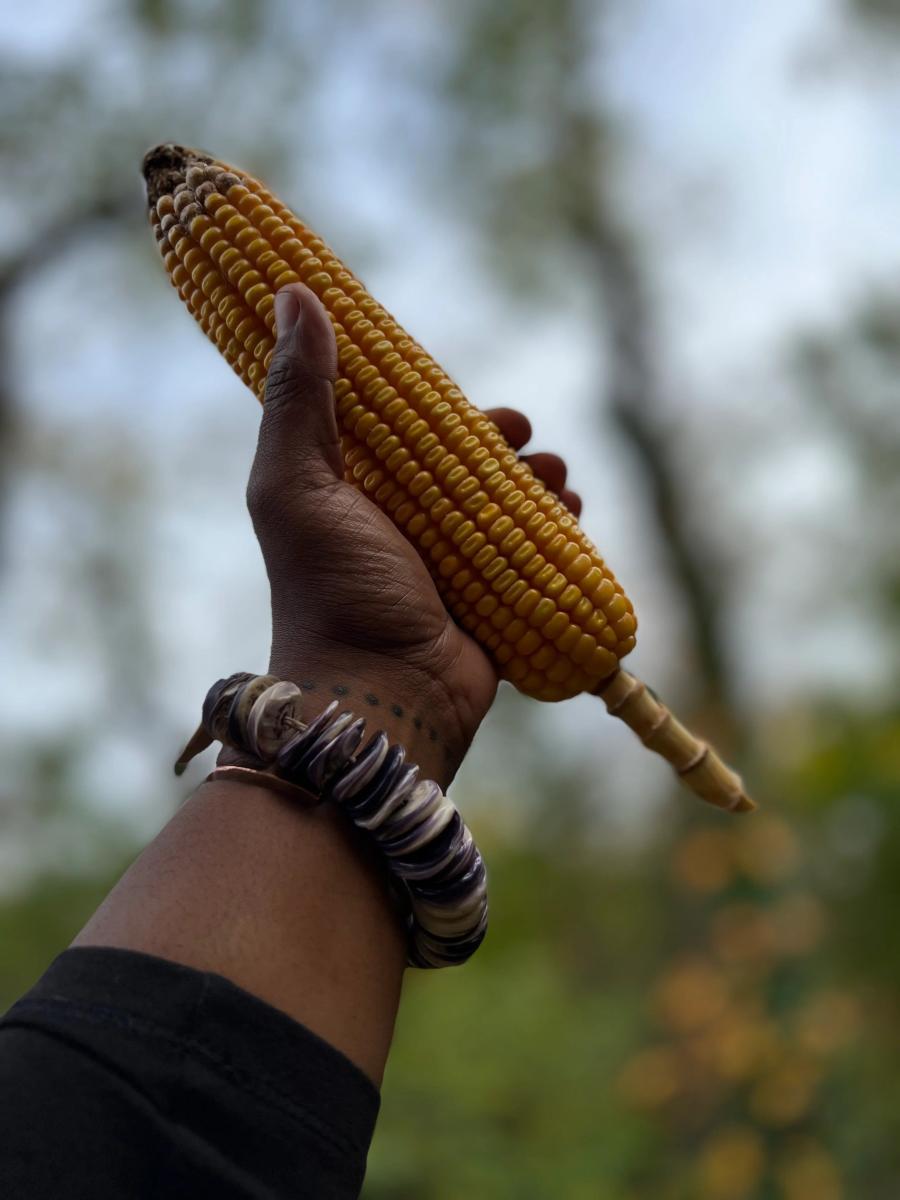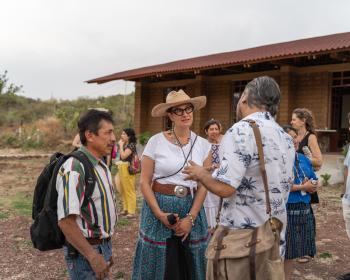By Chenae Bullock (Shinnecock)
Native American Heritage Month invites us to do more than celebrate history: we are called to engage in reflection, responsibility, and renewal. This month is not simply about learning the names of Tribes or attending cultural events. It is about understanding the deep resilience, diversity, and ongoing contributions of Native Nations, while also recognizing the systems of harm that continue to affect Indigenous communities today.
Why This Month Matters
Native American Heritage Month is a time to honor the voices, stories, and leadership of Indigenous Peoples across the United States and beyond. For centuries, Indigenous communities have been the original stewards of the lands, waters, and ecosystems that sustain us all. Yet, despite this vital role, many communities continue to face disproportionate levels of economic marginalization, environmental degradation, and systemic injustice.
According to the U.S. Census Bureau, Tribal people experience some of the highest poverty rates in the nation. This limits access to resources needed to sustain cultural programs, languages, and Traditional Knowledge systems. Environmental threats from climate change, pollution, and resource extraction further endanger both ecosystems and Indigenous ways of life.
As recognized by the United Nations Declaration on the Rights of Indigenous Peoples, Indigenous Peoples have the right to maintain and strengthen their spiritual and cultural relationships with their traditional lands. However, the implementation of these rights remains incomplete, leaving many Native Nations struggling to reclaim stewardship and sovereignty.
Chenae Bullock holding a sign at what is now 57 Montauk Highway. During the continued construction in our sacred burial grounds known as Shinnecock Hills. Photo by Kayla Lookinghorse-Smith (Lakota).
How to Engage Respectfully
As allies, educators, businesses, and philanthropists seek to support Native communities this month, it is crucial to do so with integrity and awareness.
- Do not center yourself. This is a time to elevate Indigenous voices, not to seek recognition for individual efforts.
- Acknowledge historical context. Colonization, forced removals, and systemic inequities continue to shape Indigenous realities.
- Do not extract funding meant for Indigenous initiatives. Instead, collaborate and co-create with Indigenous-led organizations.
- Do not generalize or homogenize Indigenous cultures. Each Nation has unique traditions, governance structures, and relationships to land.
- Listen, amplify, and provide platforms for Indigenous leaders to be heard directly.
- Do not limit your engagement to one day or one month. Commit to sustained partnerships that create long-term impact.
- Do not use Indigenous culture for commercial gain. Cultural respect requires consent, reciprocity, and benefit-sharing.
Going Beyond Land Acknowledgment
Land acknowledgments are a meaningful first step, but they are not enough. To truly honor Indigenous sovereignty, action must follow acknowledgment. One of the most effective ways to do this is through direct support and investment in Native-led businesses, cultural stewardship projects, and environmental initiatives. In the northeastern United States, the Shinnecock, Abenaki, Mohegan, and Haudenosaunee (Iroquois Confederacy) Nations continue to lead efforts in land restoration, sustainable agriculture, and cultural education.
- The Shinnecock Nation of Long Island, New York operates language revitalization programs and coastal restoration initiatives to protect shellfish beds and wetlands, ecosystems vital to both cultural survival and climate resilience.
- The Akwesasne Mohawk community, straddling New York and Canada, has pioneered environmental health research and clean water advocacy through the Akwesasne Task Force on the Environment, blending Traditional Ecological Knowledge with contemporary science.
- The Schaghticoke Tribal Nation and other Tribes in the region are developing sustainable forestry and land reacquisition projects that restore biodiversity and foster community employment.
Supporting these efforts is an act of solidarity and planetary care. Studies consistently show that Indigenous-managed lands have higher biodiversity and healthier ecosystems, making Indigenous stewardship a cornerstone of global climate solutions.

Sharing the Indigenous perspective to paddle tour participants for a Conscience Point Paddle Tour. Photo Credit Sunshine Gumbs.
Investing in Indigenous Futures
Family offices, foundations, and impact investors have an unprecedented opportunity to direct capital toward Indigenous-led enterprises that build cultural and ecological resilience. Investments in Native-owned renewable energy, regenerative agriculture, and land trusts create a ripple effect supporting jobs, preserving traditions, and restoring the Earth.
Organizations like the Metoac Collective, First Nations Development Institute, and the Urban Indigenous Collective provide pathways for donors and investors to engage responsibly. These initiatives ensure that resources flow to, not through, Native communities.
Impact investment in Native-run businesses is not only a moral imperative, it's an environmental one. Supporting traditional ecological practices such as controlled burns, sustainable fishing, and intercropping contributes to climate adaptation, soil regeneration, and biodiversity conservation.
The Broader Impact
When you invest in Native leadership, you invest in the planet’s future.
- Cultural Revitalization: Funding language and arts programs strengthens identity and preserves ancestral wisdom.
- Intergenerational Knowledge Transfer: Educational initiatives empower youth and secure cultural continuity.
- Ethical Consumption: Choosing to support Native-owned businesses aligns consumer values with justice and sustainability.
- Health and Well Being: Revitalizing traditional foods and healing practices enhances community and environmental health.
- Global Collaboration: Cross-cultural partnerships foster mutual understanding and peacebuilding.
A Call to Action
Now more than ever, it is time to honor the leadership and knowledge of Native Nations, not just in words, but through sustained, ethical action. This Native American Heritage Month, and for the rest of the year, let’s move beyond symbolic gestures. Support Indigenous businesses. Invest in Native-led climate solutions. Amplify Indigenous voices. Commit to learning, listening, and sharing responsibility for the health of our planet. Your support matters. Together, we can ensure that the future we build is rooted in respect, reciprocity, and renewal for all Peoples, and for the Earth.
— Chenae Bullock is an enrolled Shinnecock Indian Nation Tribal member and descendant of the Montauk Tribe in Long Island, New York. She is a community leader, water protector, cultural preservationist, Indigenous perspective historian, and humanitarian. She is also the founder and CEO of Moskehtu Consulting, LLC.
Top: Robin and Tracey Weeks standing on Shinnecock Shores. Photo by Denice Banks.



